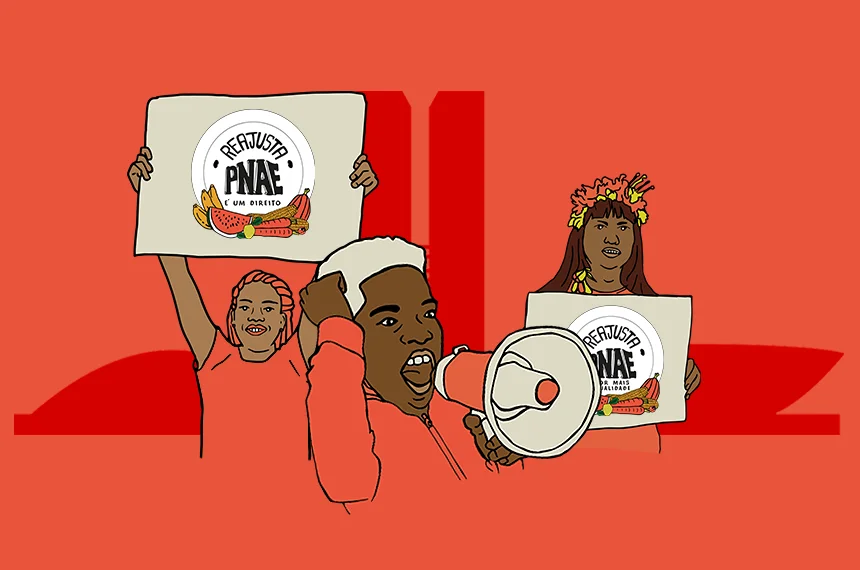By Yuri Simeon
From the School Feeding Observatory (ÓAÊ)
On Wednesday (18), the National Congress approved the 2025 Budget Guidelines Law (LDO), rejecting the inclusion of an adjustment for the National School Feeding Program (Pnae).
With no increase for two years, the Pnae budget has been eroded by food inflation. As a result, the challenges of ensuring the right to healthy and adequate school meals will be even greater next year.
For Débora Olímpio, Executive and Research Advisor at ÓAÊ, this setback for the right to school meals reinforces the need for a mechanism that guarantees an annual, automatic, and permanent adjustment to the Pnae budget, as proposed by the Reajusta Pnae Sempre campaign, launched by the Observatory.
“Every year, we fight for an adjustment just to maintain Pnae’s purchasing power, which is the bare minimum. School feeding cannot remain dependent on the political will of the National Congress and the Federal Government, or be subject to constant fiscal adjustments and food price fluctuations. This is a right and a crucial investment in the fight against hunger. We need an annual and automatic adjustment,” she explains.
The last increase was approved by Congress in 2022 and sanctioned by President Lula in 2023. Since then, food inflation (measured by the IPCA food and beverages index) has continued to rise, with projections indicating a 6% increase over the past two years.
This means that, to maintain the purchasing power it had at the beginning of 2023, the Pnae budget for 2025 would require a minimum adjustment of R$300 million. Since 2010, with sporadic adjustments that have failed to keep up with food inflation, the program’s purchasing power has already dropped by 42%, according to studies by the School Feeding Observatory (ÓAÊ).
Although the adjustment was not included in the LDO, it was approved by the Chamber of Deputies’ Education Committee but later rejected by the Joint Budget, Public Plans, and Oversight Committee of the National Congress. The decision was justified by claims that the increase would hinder “budgetary flexibility” and “compliance with fiscal targets”.

